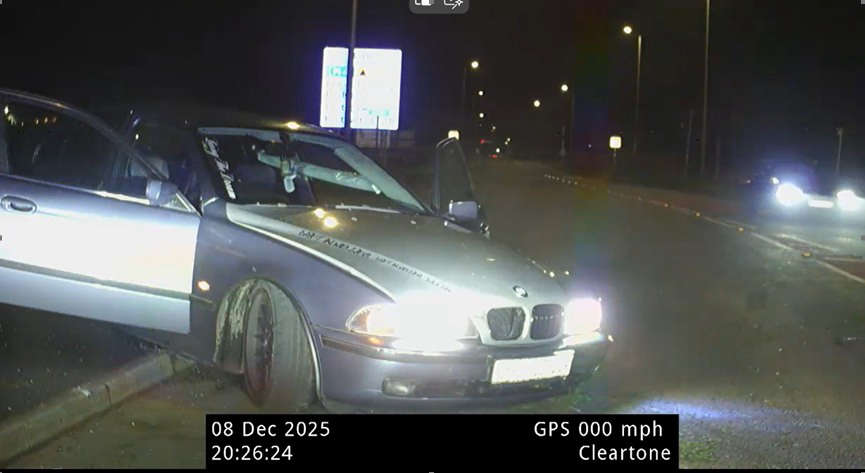
People would be given a vote on whether to remove badly behaving Senedd members from office between elections under plans unveiled today.
The Senedd's standards committee published a report recommending a system similar to Westminster's "recall" of MPs which was enacted in 2015 following the expenses scandal.
Under the plans, from May 2026, voters would be asked if they want to retain a politician who committed a "serious" breach of the Senedd's code of conduct.
With Wales moving to a fully proportional system at the next election, with no by-elections held, the next candidate on a party's list would automatically replace an ousted politician.
During the inquiry, the Electoral Reform Society raised concerns about political parties retaining seats – pointing out that most change hands in by-elections triggered by recall.
'Remove or replace ballot'
Voters would only get a say if recall was recommended by the committee and signed off by a majority of the Senedd despite concerns about politicians "marking their own homework".
The committee recommended a "remove or replace" vote then be held on a single day, akin to a by-election, with postal and proxy voting. No threshold would be set for turnout and the electorate would get six weeks' notice of a ballot.
Wales would adopt a one-stage process unlike in Westminster – where a petition is opened for six weeks and a 10% threshold must be met to vacate a seat, triggering a by-election.
To avoid confusion between the two systems, the committee recommended referring to the proposed Welsh process as a "remove or replace ballot" rather than recall.
And, to give themselves more flexibility, Senedd members stopped short of recommending the triggers for such a vote be placed in legislation.
Triggers
While an MP suspended for 10 days or more could face recall, the committee suggested a threshold more than twice as long at about 21 days for Senedd members.
The committee also suggested a prison sentence, whether custodial or suspended, of 12 months or less as a trigger in line with Westminster.
For longer sentences, Senedd members and MPs are already automatically disqualified.
Welsh Lib Dem leader Jane Dodds, an ex-MP who was herself elected after a by-election triggered by recall, called for the 12-month threshold to be lowered during the inquiry.
Scotland is seeking to reduce this threshold to six months and extend a rule for councillors to MSPs, so they too can be removed if they do not attend meetings for six months.
'Decency'
But Senedd members considered 12 months to be an appropriate trigger and did not make any recommendations around non-attendance, with much of the detail set to follow in guidelines.
Under the proposed system, a seat vacated by a politician who had left a party, for example, due to a matter of conscience would be filled by a candidate on their original party's list.
In the 52-page report, the committee said it was comfortable, on balance, with having a seat potentially be vacant for years if an independent was removed or a party exhausted its list.
In March 2024, Rhys ab Owen was suspended from the Senedd for 42 sitting days after a finding that he had inappropriately touched a woman and twice called her a "bitch".
Mr ab Owen, a South Wales Central MS, now sits as an independent after being expelled by Plaid Cymru.
Hannah Blythyn, who chairs the standards committee, said: "For our parliament to function well, the public must have confidence in members....politicians must act with decency and integrity and if they fail to do so, they should be accountable to the public for their actions."
'Public confidence'
Ms Blythyn, who was sacked by former first minister Vaughan Gething in May over claims she leaked to the press, pointed to her committee's wider work on accountability.
She said: "The report on recall is part of an ongoing programme of work that is aimed at building trust and transparency, in both the Senedd's standards procedures and our devolved democracy as a whole."
"It's important we create a robust system that means that MSs are fully answerable to the people of Wales. The code of conduct that MSs are expected to abide by must be respected."
"That is why we believe that it is right for the Senedd to introduce a system where the public have the option of removing MSs who seriously breach the code."
"Today we're calling on the Welsh Government to implement our recommendations and bring forward legislation to strengthen our system and reinforce public confidence."




 New Year MBE for social care director
New Year MBE for social care director
 Yellow Weather warning issues for Snow later this week
Yellow Weather warning issues for Snow later this week
 Decision due on wood processing plant
Decision due on wood processing plant
 Carbon emissions up by 6% last year
Carbon emissions up by 6% last year
 Toddler dies after medical episode
Toddler dies after medical episode
 Power tools stolen in van break-ins
Power tools stolen in van break-ins
 New Community Cinema to launch in Llantwit Major
New Community Cinema to launch in Llantwit Major
 Three youths arrested after Penarth assault
Three youths arrested after Penarth assault
 CCTV appeal after Barry robbery
CCTV appeal after Barry robbery
 Barry: three men jailed in shoplifting crackdown
Barry: three men jailed in shoplifting crackdown
 Cardiff Bay connects to heat network
Cardiff Bay connects to heat network
 Two boys guilty of Kamran Aman murder
Two boys guilty of Kamran Aman murder
 Another successful year for Santa's Cause
Another successful year for Santa's Cause
 Two men questioned after A48 collision
Two men questioned after A48 collision










